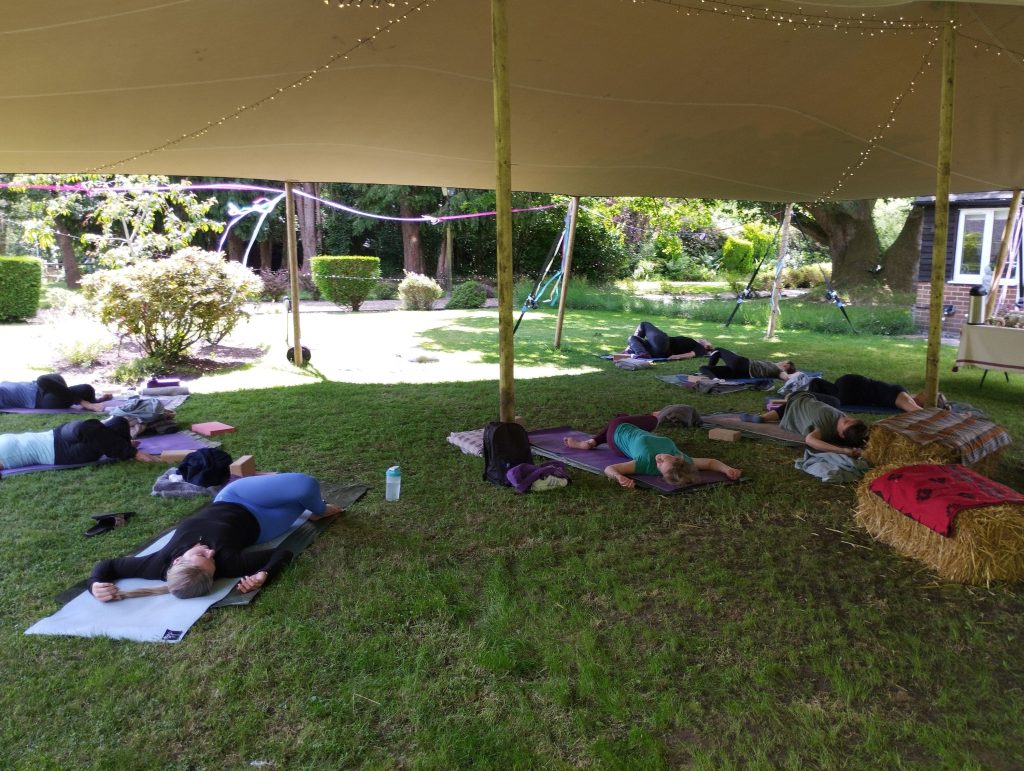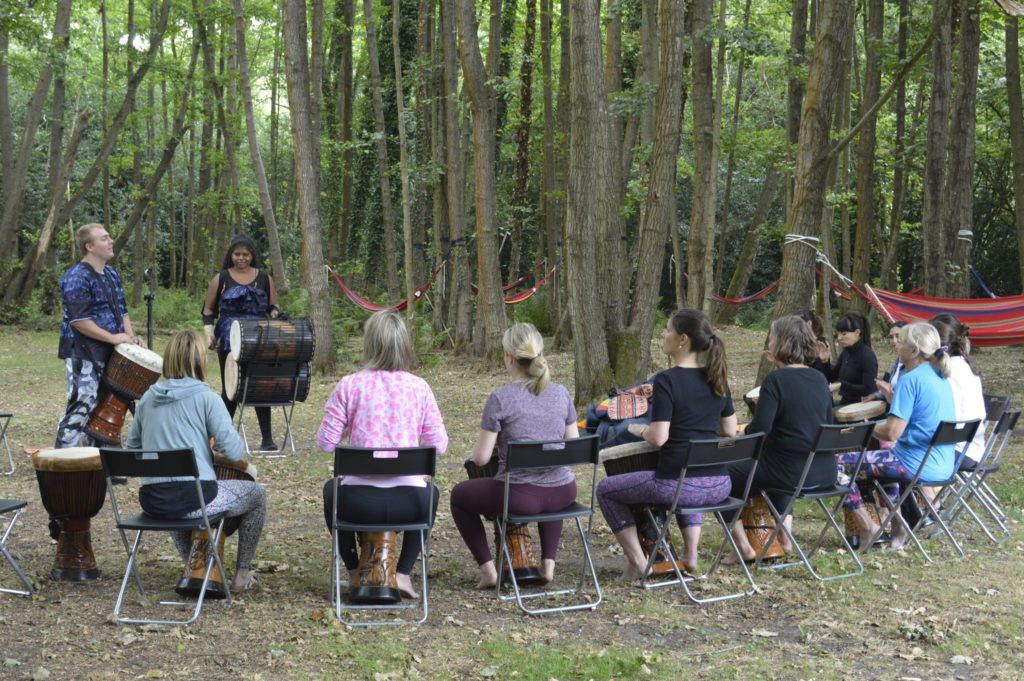Aluminium Foil

The higher the temperature you cook in, the more aluminium leaches into your food. Acidic foods and spices can also make the aluminium leach into your food. Aluminium doesn’t seem to leach if you use the foil just to wrap food but I prefer not to take the risk!
“The biggest concern with aluminium is that it builds up in your bones and can take the place of calcium, deteriorating your bone quality. People with too much aluminium in their bones will show high levels of calcium in the blood because that calcium is not deposited in the bones. This inhibits bone mineralization, resulting in osteoporosis.”
Our bodies can process some of this aluminium and get rid of it. According to the World Health Organization, it is considered safe to intake about 40mg of aluminium per kilogram of body weight BUT aluminium if found in SO many products do we really know how much is being absorbed by our bodies?
Aluminium is found in:
- antacids
- dyes
- cake mix
- processed cheese
- deodorants
- baking soda/powder
- foil
- cookware
- vaccinations
- shampoos
- cosmetics
- lotions
- soda cans
- soy based and/or lactose intolerant baby formulas
Non-Stick Pans
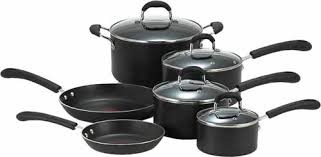
The most commonly used is PTFE-coated “non-stick” cookware which is also sometimes referred to as Teflon cookware.
When exposed to heat, most non-stick cookware becomes a source of perfluorooctanoic acid (PFOA), which is a long-chain chemical compound that has been linked to a range of health problems including cancer, thyroid disease, infertility in women, organ damage and developmental and reproductive problems.
Academics from the Green Science Policy Institute in Berkeley, California have released a petition, known as The Madrid Statement, signed by over 226 scientists and professionals from 40 countries, which highlights the potential harm of PFAS chemicals, which are often used in the manufacture of non-stick pans, among many other items.
Poly-perfluoroalkyl substances (or PFASs) are man-made chemicals found in various items including household products, electronics parts, building equipment etc.
Cling Film
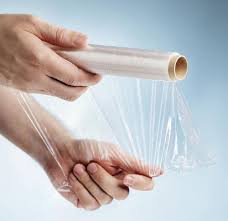
Cling film can be made from a variety of plastics, however the original and most popular material is polyvinyl chloride (PVC). Not only is there talk of this plastic being harmful to human health, it is also a single-use product, meaning it is ending up in landfill and in our oceans where it is causing harm to the environment and nature.
New evidence suggests that heat makes chemicals in any plastic, including clingfilm and plastic storage boxes and bottles leach into food and drink: two major reports last year linked 175 compounds to health problems connected to cancers, fertility and foetal development.
Companies make a selling point of being BPA-free, but we don’t know what chemicals are replacing BPA and the manufacturers don’t have to tell us!
Most manufacturers have now switched to bottles made of PET (Polythethylene Terephthalate) which does not contain BPA and which, they say, is safe and complies with European and UK requirements. However concerns are starting to emerge that even PET plastics may contain a possibly harmful chemical called antimony trioxide. Also consumer tests have found BPA is still found in many plastic bottles and other plastic food utensils sold in the UK. Breast Cancer UK is calling for a British ban, bringing us in line with other European countries.
What to use instead?
- Glass baking pans, stainless steel pans and cooking utensils, stone cookware and wooden utensils.
- Baking paper to line pans if needed.
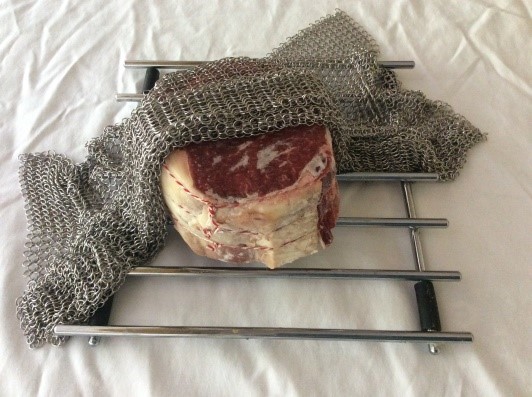
- Stainless steel mesh to cover meat or food to stop them burning in the oven or when out of oven to keep food hot.
- Brown paper bags for snacks and sandwiches, twine to wrap sandwiches in baking paper and biodegradable cotton mesh bags to get fruit and vegetables from the market
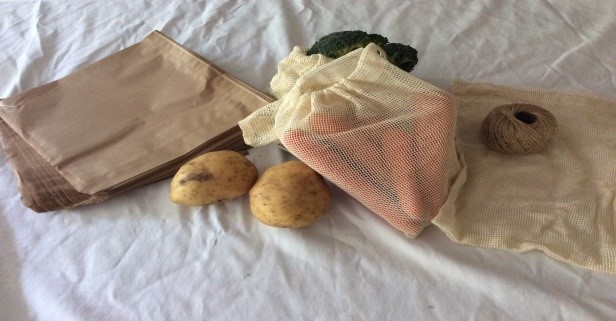
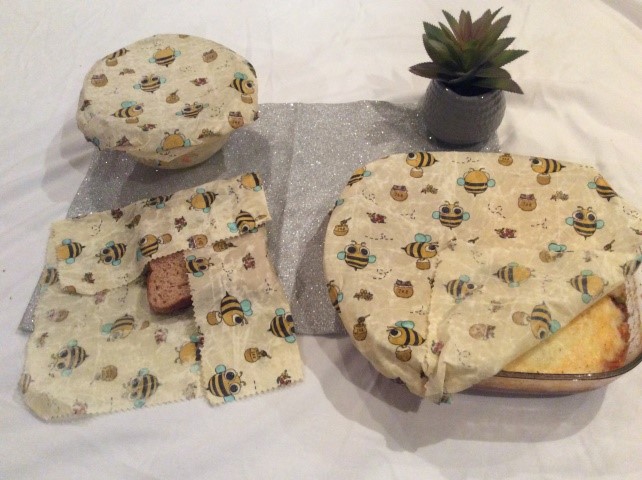
- Beeswax paper to help cover bowls and jars
- Don’t use plastic drinking bottles especially if leaving them in a car to heat up under the sun or after washing them out in hot water to use again.
Instead use a stainless steel water bottle such as Kleancanteen bottles.
N.B. There are so many of these bottles on the market at the moment they all look similar so be careful not to buy one with an aluminium lining, opt for a stainless steel water carrier such as Kleancanteen or Ecotanka which come in a range of sizes with interchangeable lids
- Use stainless steel storage pots
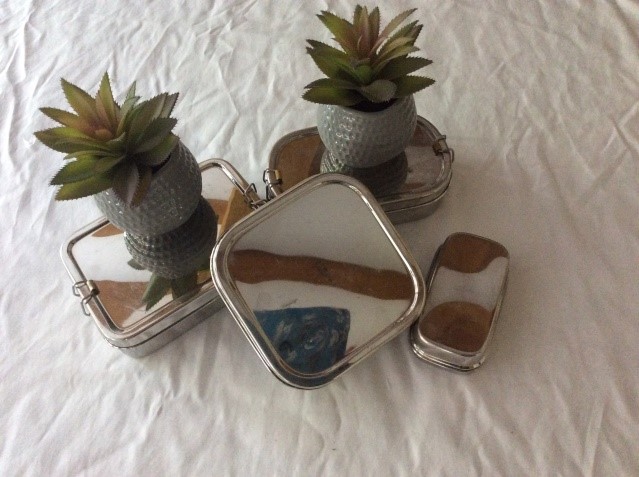
- Use glass baby bottles
- Avoid canned food “Recent research from the Harvard School of Public Health8 revealed that canned foods and beverages can increase your BPA levels by a staggering 1,000 percent in a mere five days!”
Want to read more studies on the effect of plastic and aluminium?
- https://www.breastcanceruk.org.uk/reduce-your-risk/back-to-school/healthier_lunches
- https://www.cancer.org/cancer/cancer-causes/teflon-and-perfluorooctanoic-acid-pfoa.html
- https://www.atsdr.cdc.gov/phs/phs.asp?id=1076&tid=34
- https://www.researchgate.net/publication/221971690_Risk_Assessment_of_Using_Aluminum_Foil_in_Food_Preparation
- https://www.ncbi.nlm.nih.gov/pubmed/24513181
- https://www.instagram.com/
- https://www.ncbi.nlm.nih.gov/pubmed/2198876
- https://www.ncbi.nlm.nih.gov/pubmed/10901330
- https://www.ncbi.nlm.nih.gov/pubmed/21157018
- https://www.ncbi.nlm.nih.gov/pubmed/1467159
- http://www.electrochemsci.org/papers/vol7/7054498.pdf
However, The Alzheimer’s Association lists aluminium as the number 4 myth about the disease, and WebMD deems it simply “controversial” at best.
I will leave it up to you to make up your own mind….
Sourcing
Brilliant Food Wraps from www.onyabags.co.uk
Aluminium foil replacement: https://www.amazon.co.uk/Roasteasy-Stainless-Steel-Great-alternative/dp/B011LBEXYUoil
Reusable biodegradable cotton mesh bags:https://www.amazon.co.uk/dp/B07K43YMZN/ref=sspa_dk_detail_3?psc=1&pd_rd_i=B07K43YMZN&pd_rd_w=clTL0&pf_rd_p=454d2892-a6d1-488a-b5c1-57058b38bc92&pd_rd_wg=SG6HE&pf_rd_r=TVAHEV1DG5SSFKD9577C&pd_rd_r=ac776cd9-2d72-11e9-8c27-41546abc73e7


